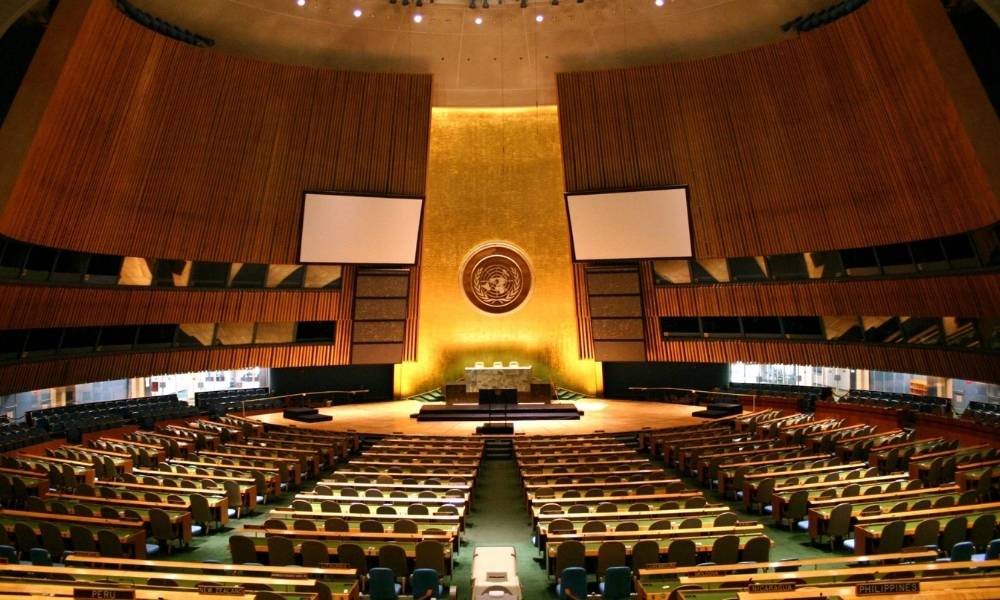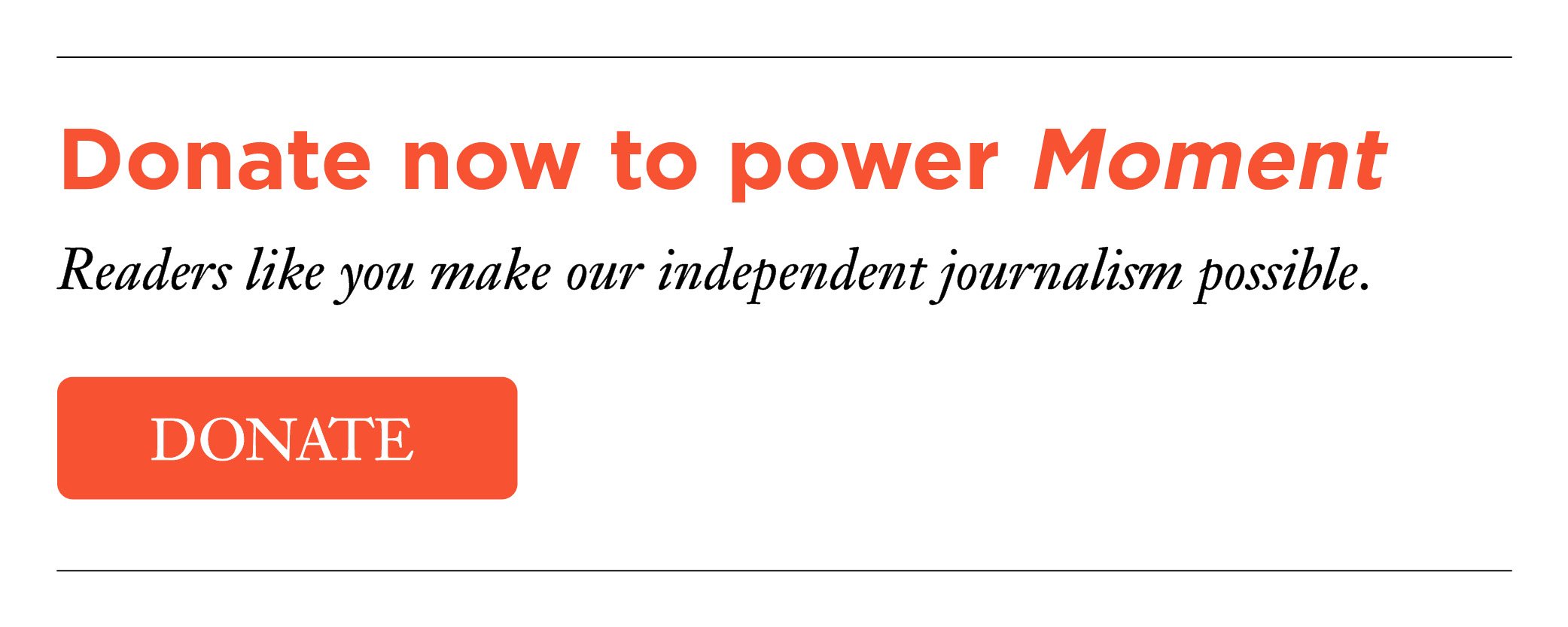Q&A with Aaron David Miller: This Week’s Monumental Shifts on Israel and Gaza

From the Arab League’s “New York Declaration,” to the world’s attention on Gaza and the plunging support of Israel in the United States, things are changing fast. Yesterday, Middle East analyst Aaron David Miller, Senior Fellow at the Carnegie Endowment for International Peace, joined Moment Editor-in-Chief Nadine Epstein for a conversation about what these statements and changes really mean. The following was adapted from their conversation and edited for length and clarity. Watch the full program here.
This week, 22 countries in the Arab League (along with 27 European Union member states and 17 other countries) issued a declaration that condemned the October 7 attacks, demanded Hamas turn over their weapons to the Palestinian Authority and release all hostages, called for a two-state plan that would include a demilitarized Palestinian state, and ruled out Hamas being involved in any kind of future governing of the Palestinians. It also included something that Israel has long talked about, which is getting rid of harmful material in Palestinian educational curriculums. It’s July 31, 2025. Why now? Will anything come of it?
The Saudis and the French convened a conference at the UN in New York, and that statement from the Arab League was done under the auspices of that conference. I’m close to the head of the Arab League—wonderful man—and I think he would not disagree that positive consequences of Arab League proclamations have been few and far between.
But beyond the declaration, what we don’t have are leaders in Washington, in Jerusalem and in the Palestinian national movement who could take advantage of this Arab League position in order to create a rational and effective day-after strategy. Such a strategy would need to answer three basic questions: Who will govern Gaza? Who will provide the security architecture and structure that will make a permanent Israeli occupation of Gaza unnecessary? And who will minister and attend to the humanitarian suffering and to the reconstruction of Gaza?
What about the Arab League? Is there actually something important in their statement, for example, an Arab League Task Force that could make a difference in Gaza?
The Arab states will play a role in all three questions that I asked, but they won’t do it unless they believe that the war is over and that the Israelis are prepared to build a bridge forward in the philosophical sense, not in the legal sense—that some progress could be made on the Israeli-Palestinian issue.
Another shift that’s happened in the last week, which perhaps is because the United States has ceded its moral authority in the Middle East and is working on a more transactional basis, is that Europe has gotten involved. France already announced that it’s going to recognize a Palestinian state, and the United Kingdom is saying that they may do that as well, along with a number of other countries. What is the significance of this? Is it part of a broader strategy?
It’s a very good question. I think it’s driven by the need to do something to address the pictures coming out of Gaza. The Europeans are not going to get anything for it, except a lot of grief from Trump.
I continue to believe that the only solution that addresses all of the underlying structural impediments that drive the Israeli-Palestinian conflict is separation through negotiation. October 7 demonstrated with terrifying clarity that Israelis and Palestinians cannot live together happily under one roof without satisfying Israeli security needs and the national aspirations of a much aggrieved people. You and I are going to be having this conversation for many years to come.
Certainly it’s consequential when two of the three countries that Israel cares about in Europe—the third is Germany, and the Germans have not yet spoken about this—say they’re going to recognize a Palestinian state. Canada as well. I think it particularly reflects the moral quandary of Keir Starmer, who was a human rights lawyer. Macron, I’m sure, feels deeply as does Canada’s Mark Carney, but it also reflects the failure of the Netanyahu government and its prime minister, who fashions himself a master on the world stage. But it does not reflect a serious move that can and will change anything on the ground. It’ll only drive the Israelis deeper into their corner.
For the past two years, and well before that, there’s been a propaganda war between Hamas and Israel. Right now the focus is on life in Gaza—on malnourishment, starvation, deprivation. What is your assessment of what’s really going on in Gaza? Can we trust UN sources? Can we trust the Israelis?
This really isn’t a question for a 40,000-foot view, but I can say this: The absence of a strategy on humanitarian assistance is a collective failure.
I do think Hamas was pilfering aid from smaller NGOs and from the Palestinian Red Crescent. But the Israelis have yet to demonstrate empirically that large amounts of distributed assistance has been stolen by Hamas. But again, there’s never been a strategy for distributing aid in Gaza. Why? A combination of reasons: anger and hatred over what Hamas had done, the killing and abuse of the hostages, the instincts/policy inclinations of the most right-wing government in Israel’s history, and mistrust of the UN.
The Israelis are now going to have to step up in a way they haven’t before. You’re going to somehow need a less rigorous screening process, and you’re going to need the Israelis to try to secure humanitarian routes in order to allow the UN in. And the trickiest problem of all, how do you distribute aid in very close proximity to armed elements and the IDF? I don’t know the answer to that.
Right now, there’s a lot of worldwide pressure on Israel. Are we at a tipping point such that Israel will have to make concessions that they would not have made in the past?
If there are concessions made, it won’t be to the Europeans. It’ll be made to the Trump administration. Whether or not Donald Trump is prepared to use leverage is an unknown question. He is capable of being tough when he sees it in his interest to be tough. In the last six months, Trump has done what no other Republican or Democratic president or administration I ever worked for has done: In March he unilaterally opened a dialogue with Hamas, empowering his hostage negotiator. They had three meetings, which the Israelis had to learn about after the fact. He also cut a deal with the Houthis, and the Israelis learned about it after the fact. He suspended sanctions against the new Syrian government and opened negotiations with Iran, both over the objections of Benjamin Netanyahu.
Over ten years ago I wrote a column looking at two phrases people have been saying for as long as I remember: “Time is running out for Israel,” and “There is no partner.” With the Arab League’s “New York Declaration,” is there more of a possibility of a partner now?
I do not understand, morally, how it is possible for anyone to make global predictions that something can never happen. I’ve never really understood that logically, and I wouldn’t do it to my children or my grandchildren. I certainly don’t have the right to do it to complete strangers. They asked Joe Biden what his definition of America was, and his one-word answer was “possibility.” If we had leaders who wanted to change the world, really change it, who had their eyes wide open and were committed to the process with all the political and psychological obstacles, who knows? So, yes, I think there is possibility, and I would never try to appropriate, diminish or trivialize the traumas that Israelis have felt and will continue to feel, nor what Gazans have been through.
Top image: United Nations General Assembly Hall. Credit: Patrick Gruban @ Flickr


